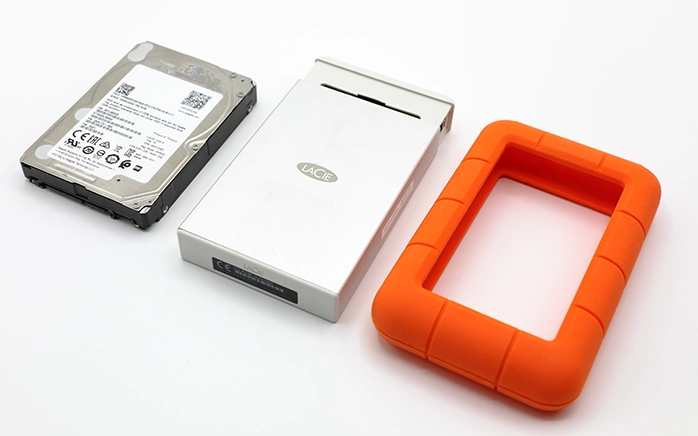In today’s digital age, computers have become an integral part of daily life for both businesses and individuals alike. As users entrust their desktop and laptop computers with vast amounts of valuable data, they depend on these devices to deliver consistent, error-free performance.
However, the looming threat of data loss is an unfortunate reality, with file inaccessibility occurring for a variety of reasons. This can result in consequences that vary in severity depending on the underlying cause. In this discussion, we will delve into the significance of computers in our daily lives, explore the potential reasons for data loss, and examine the implications of file inaccessibility.
Causes of Computer Data Loss
Software Errors
When there is an issue within the software of your computer, all the files processed by this software will no longer be available. These errors may be caused by different issues, but the result is the same.
Malware and Virus Attacks
Downloading anything on your device from an unreliable source can cause file system and software corruption. Thus, the data stored on the computer could not be accessed.
Physical Damage
Water, fire, or dust damage can cause the hard drive to fail. After a hardware failure, all the files on a device will be lost. A power surge can be another reason for data loss on a computer's HDD or SSD.
Human Error
Human error is one of the most common reasons for computer data loss. Accidental deletion, formatting, and other reasons lead to the inaccessibility of the files.
Wear and Tear
Data storage devices have a limited lifespan. File inaccessibility of computer can occur due to the long performance and appear bad sectors on the hard disk or solid-state drive.
When a data loss occurs on your computer for any of these reasons, it is essential to be careful with it. Any wrong step can cause more damage to the appliance, making the files unrecoverable.
After noting any signs of data loss on your computer, power it down. It is also essential to unplug the device from a power source. This way, you will prevent subsequent damage to the device.
In addition, users can avoid such a critical situation by maintaining several requirements. There are several options for preventing data loss on a computer.
Methods of Preventing Computer Data Loss
Regular Backups
Making regular backups of your essential data is one of the main principles of saving critical data if data loss occurs. By copying your files to an external hard drive, flash drive, or cloud, you can make the file inaccessibility situation more manageable when it happens.
We recommend keeping your backup in a different place from your computer. If it is kept near your computer, you will have to recover lost information after a natural disaster or local damage.
Use Antivirus Software
Computer viruses can enter your computer in many ways. They can enter through an infected file attached to an email, shared files online, or by visiting websites that use security holes in your system to destroy information.
Whatever way they enter, the consequences are the same: they can damage your computer, steal your data, and even take control of your device.
To protect yourself from viruses, you should use an antivirus program. Antivirus programs scan your computer for viruses and remove them before they can do any damage.
You should also keep your computer’s operating system and software up to date. These updates often include security patches that can help to protect your computer from viruses.
Finally, be careful about what you click on and download. Only open files from trusted sources, and be careful about what websites you visit.

Use Power Failure Protection
A power failure remains a common cause of data loss and damage to a computer’s hard drive. With power failure protection, unforeseen shutdowns of the system can be prevented, and damage to the device will be avoided.
Properly Shut Down a Computer
It is essential to exit all active programs before powering down the computer. If you shut down your computer without closing active programs correctly, the risk of losing data increases.
Regular Drive Scans
It is essential to regularly check the condition of the data storage device on your computer. If anything is wrong with your hard disk or solid-state drive, the issue will be noted immediately.
Control the Environment
Keep your computer secure, so it is safe from being dropped, bumped, or damaged. It is critical to make sure that the physical damage situation is avoided. Laptops are convenient for work, but they often fall victim to careless handling, falling, and then having to recover sensitive information.
If the data loss cannot be avoided, it is critical to entrust your case to professionals. Handling your case at home is not an option, as you can severely worsen the situation.
Contact a reputable recovery company when noting frequent error messages, slow speed, or corruption on your desktop. PITS Global Data Recover Services provides computer users with an extensive set of file recovery solutions.
Our engineers restore lost files from hard disks and solid-state drives, achieving high success rates.
Benefits of Working with Us
Why Choose Us
PITS Global Data Recovery Services delivers premium data recovery solutions with a focus on quality and individual care for every case. As a DUNS-verified business, we are committed to excellence, ensuring 100% customer satisfaction. Our tailored service options suit a range of recovery needs and budgets. For critical situations, we offer emergency data recovery, restoring data quickly and reliably without compromising quality.

If you’re facing a data loss situation, don’t hesitate to contact us. Our 24/7 data recovery services are available to you, 365 days a year. Let us help you recover your precious data today.

We start the recovery process with a risk-free evaluation. Our technicians estimate reasons for data loss and the level of damage. Based on it, we select the most suitable recovery strategy.

With years in the data recovery industry, our company supports the highest customer satisfaction rate. We do everything to provide a positive experience for our clients.

During our remote customer file verification session, you will thoroughly review all necessary documents and records to ensure accuracy and compliance.

We offer data recovery services from over 50 locations across the US. This means that no matter where you are located, you can access our services to recover the data.

With our certified data recovery services and 99% success rate, we are confident that we can recover your precious data and get you back up and running in no time.
PITS has been in the data recovery business for many years. We have worked on a wide variety of data loss cases and have a proven track record of success. We will find the most suitable solution for your case and successfully recover your data from your desktop or laptop computer.
Contact us today by calling our customer service line or filling in the form below. Our customer service team will get back to you as soon as possible to discuss your case and answer any questions you may have.
We look forward to hearing from you and helping you to recover your data.
Frequently Asked Questions
What is data loss, and why is it a concern for computer users?
Data loss refers to the accidental or intentional deletion, corruption, or loss of digital information stored on a computer. It is a concern because it can lead to the loss of critical documents, photos, videos, and other valuable data, which can be difficult or impossible to recover.
How often should I back up my data?
The frequency of data backups depends on your needs and the importance of the data. For critical data, daily or weekly backups are recommended. Automated backup solutions can simplify this process.
What is the 3-2-1 backup rule?
The 3-2-1 backup rule is a widely recommended strategy for data backup and prevention of data loss. It suggests having:
- 3 Copies: Maintain at least three copies of your data— the original and two backups.
- 2 Different Media: Store the backups on at least two different types of media (e.g., an external hard drive and cloud storage).
- 1 Offsite Location: Keep one backup copy offsite to protect against physical disasters (fire, theft, etc.).
How do I choose the right data backup solution for my needs?
The right data backup solution depends on your requirements and preferences. Consider factors like data volume, accessibility, budget, and the importance of data. Options include external hard drives, network-attached storage (NAS), cloud storage, and backup software solutions. It’s often beneficial to use a combination of these methods for comprehensive data protection.


